Ilhan Omar On Being Unapologetically Muslim
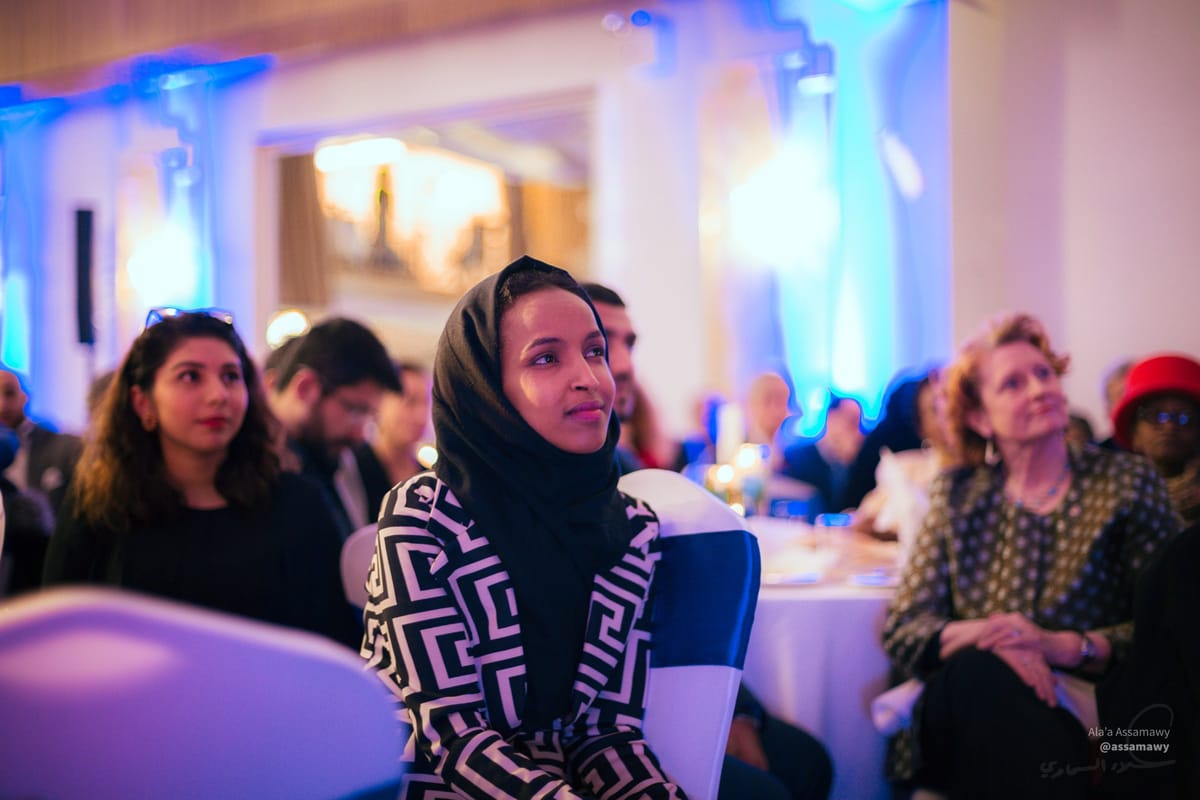

SUNSET PARK – America’s first hijab-wearing Congresswoman Ilhan Omar was the keynote speaker at the first annual Yemeni American Merchants Association (YAMA) Gala on Saturday, February 2.
She spoke of not giving up, the Muslim Ban, and what it means to be one of first two Muslim women in Congress. Also in attendance at Widdi Hall were a total of 30 elected officials including Borough President Eric Adams, State Senator Andrew Gounardes, NYC First Lady Chirlane McCray, District Attorney Eric Gonzalez, Council Member Helen Rosenthal, Congresswoman Yvette Clarke (and Una Clarke), Council Member Jumaane Williams, and Assembly Member Robert Carroll.
Council Member Carlos Menchaca and Congresswoman Nydia Velazquez didn’t stay for long, as they said their hellos and left for the Metropolitan Detention Center where inmates were without power and heat. And also in attendance was Congresswoman Alexandria Ocasio-Cortez, there to cheer on her colleague and friend.
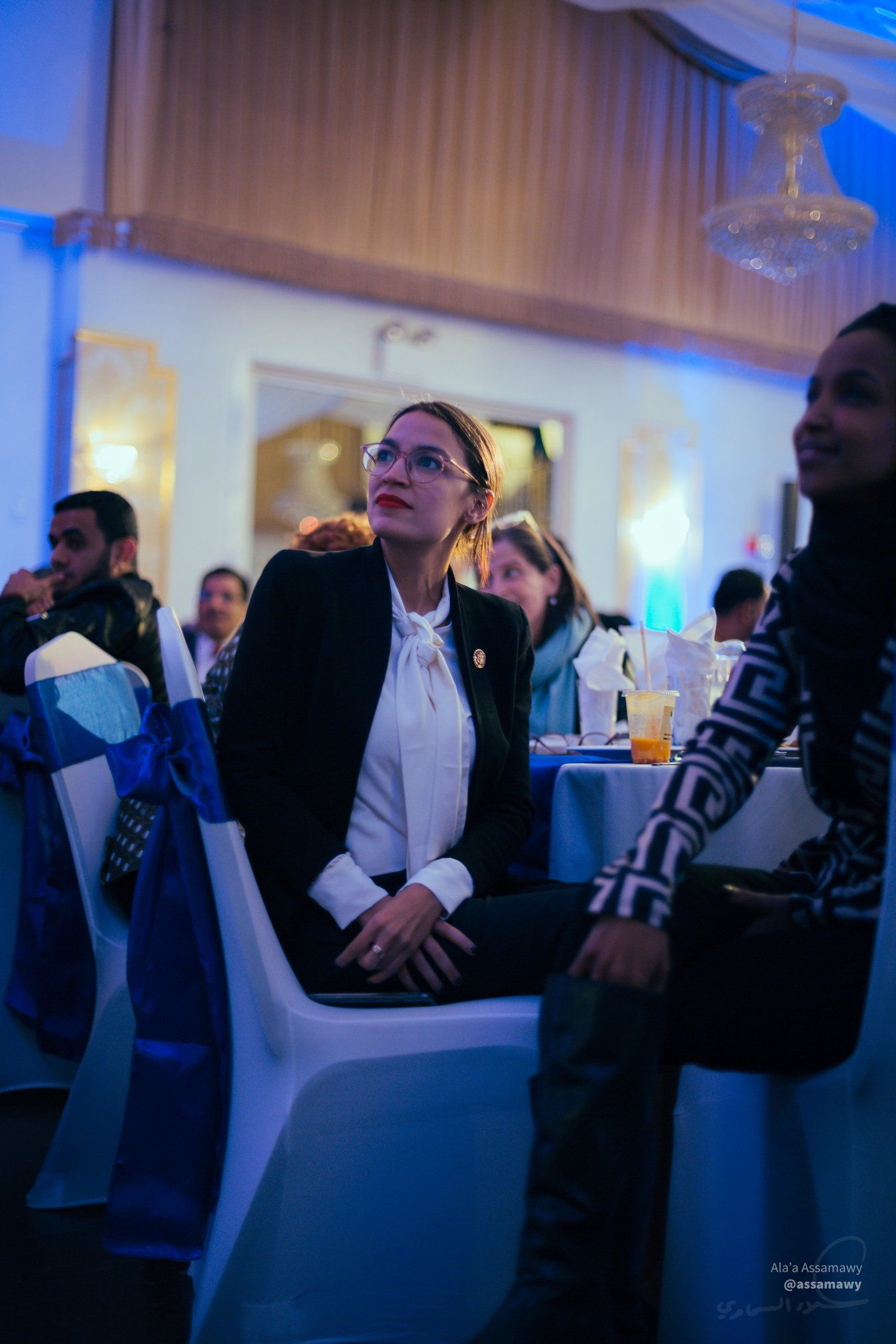
“I know that the Yemeni community has a special fight in their heart, that they have a big drive, they know what hard work looks like, they are tenacious, they can be a little tough, they have a lot of fight in them, and there’s a special spirit that is in their blood,” Omar said about the Yemeni community in attendance. “It’s the spirit that used to be in my ummi’s blood, in my mom’s blood. It’s the spirit that was in my grandfather’s blood. It’s what he passed on to me.”
YAMA formed two years ago after 5,000 bodega owners in Brooklyn went on strike following the Muslim Ban. At the same time Omar was busy organizing people in Minnesota to talk and stand up “against this ban that would forever put a stain on our nation’s history.”
“The work that was getting done in NY was going to be one that transformed the conversation,” she said. “Because when people saw 5,000 Yemeni merchants and their neighbors rising up, they knew that Muslims here in the United States were not playing. That we were no longer going to sit on the sidelines. That we weren’t afraid and we recognized our power.”
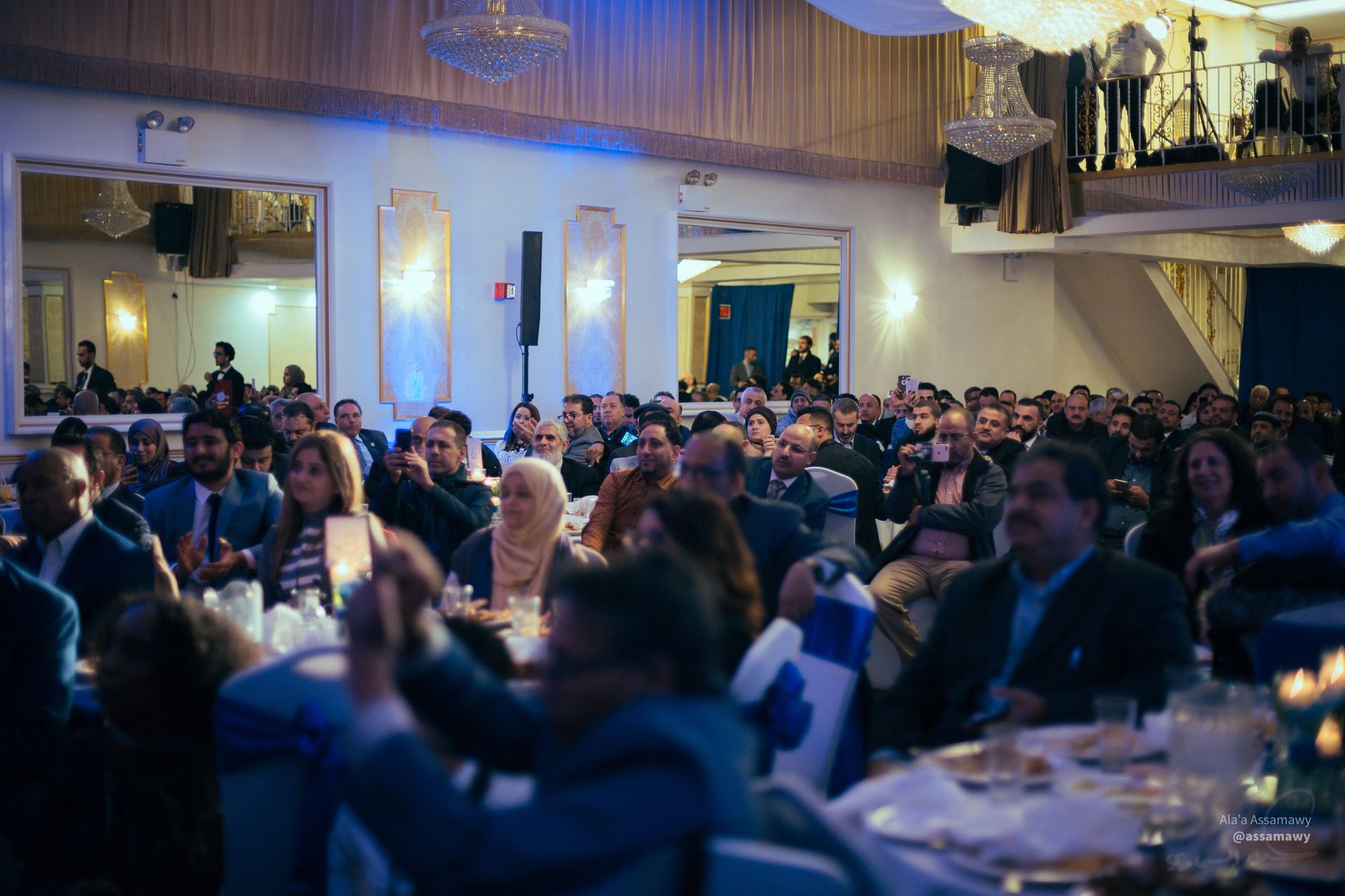
Omar came to America 23 years ago from a refugee camp in Somalia. She thought America was a prosperous, equitable country that afforded equal justice to everyone. But when she came here, she saw something different. She said she remembers driving through Manhattan and seeing homeless people on the street. She turned to her dad and said, “This does not look like the America you promised,” she recalled. Her dad told her she’s never patient; it’ll eventually come, he had said.
“From that day on, I knew that there was an America that was possible and I needed to work towards the America we deserved.”
Omar received a standing ovation and tons of applause. She credited educator and community activist Debbie Almontaser for believing in her.
“I knew that back in 2016 when I was running for the Minnesota House against a 44-year incumbent, when a lot of people didn’t believe I could win, that I had it in me. When a lot of people thought that if I got 10 percent of the votes, I should pat myself on the back, job well done,” Omar said. “I knew that there were going to be people like Debbie… and the Yemeni community here in NY who believed in me. Who could share their resources to make sure that a young Somali refugee in Minnesota could become a representative.”
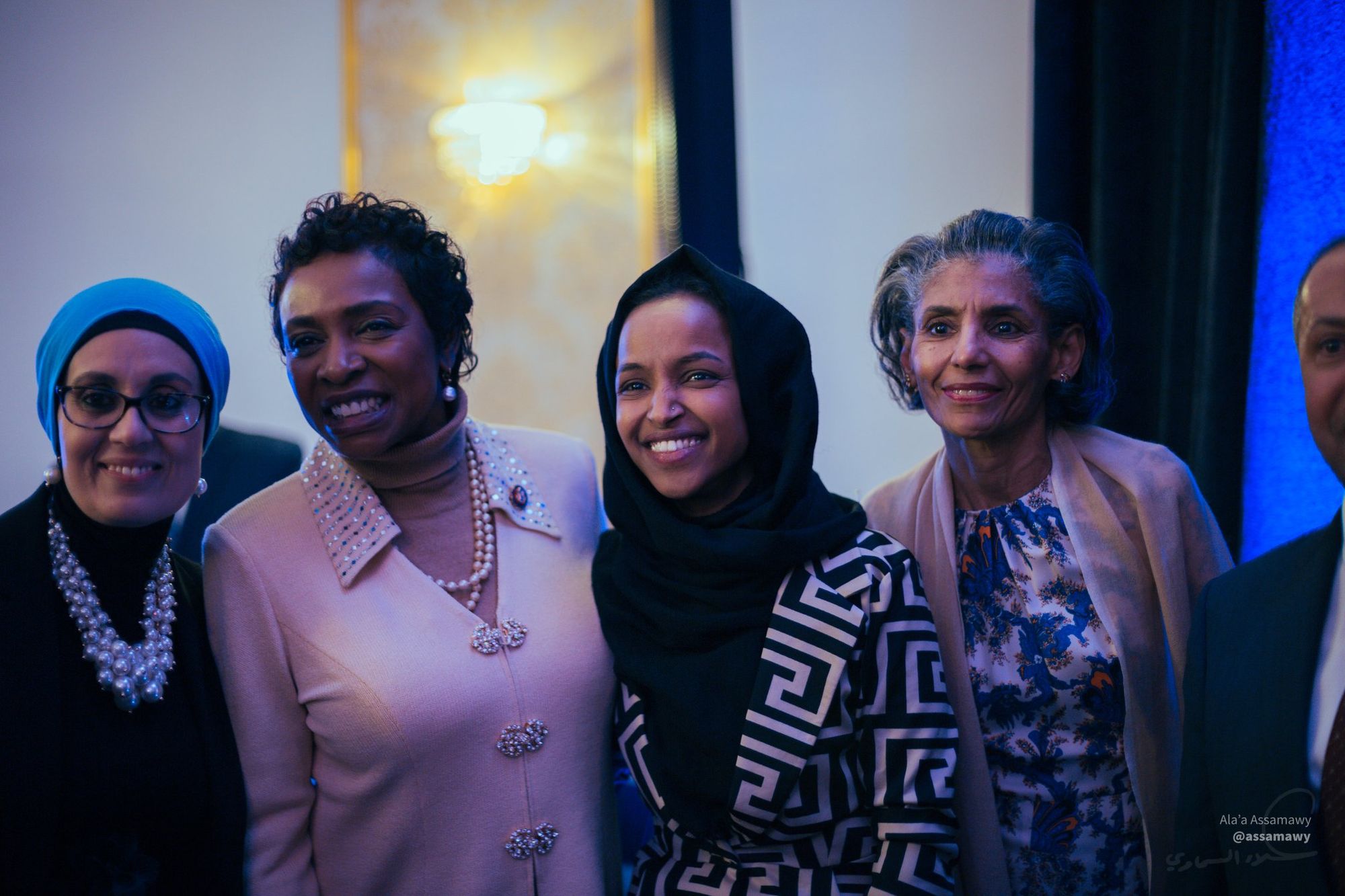
The 37-year-old congresswoman told the story of her grandfather who used to invite panhandlers inside his home to eat lunch with them. Omar said she was always confused about that as a kid because no one ever talked about inviting homeless people inside your homes.
“My grandfather would say this person today can someday become the doctor that saves you, the teacher where you send your kids to school. This person can be the imam that prays for you when you pass away.”
Congresswomen Omar and Rashida Tlaib of Michigan have both received backlash over their views on Israel. Omar said she has had enough.
“I know there are so many people who are uncomfortable with the two new congresswomen that they have in Congress,” she said. “But I’ve lived in discomfort for a long time and I’m kind of excited for people to be uncomfortable for a long time.”
She said she and Tlaib are excited to stir up trouble, excited to shape the narrative of Muslims in America. So, “don’t worry about us,” she said.
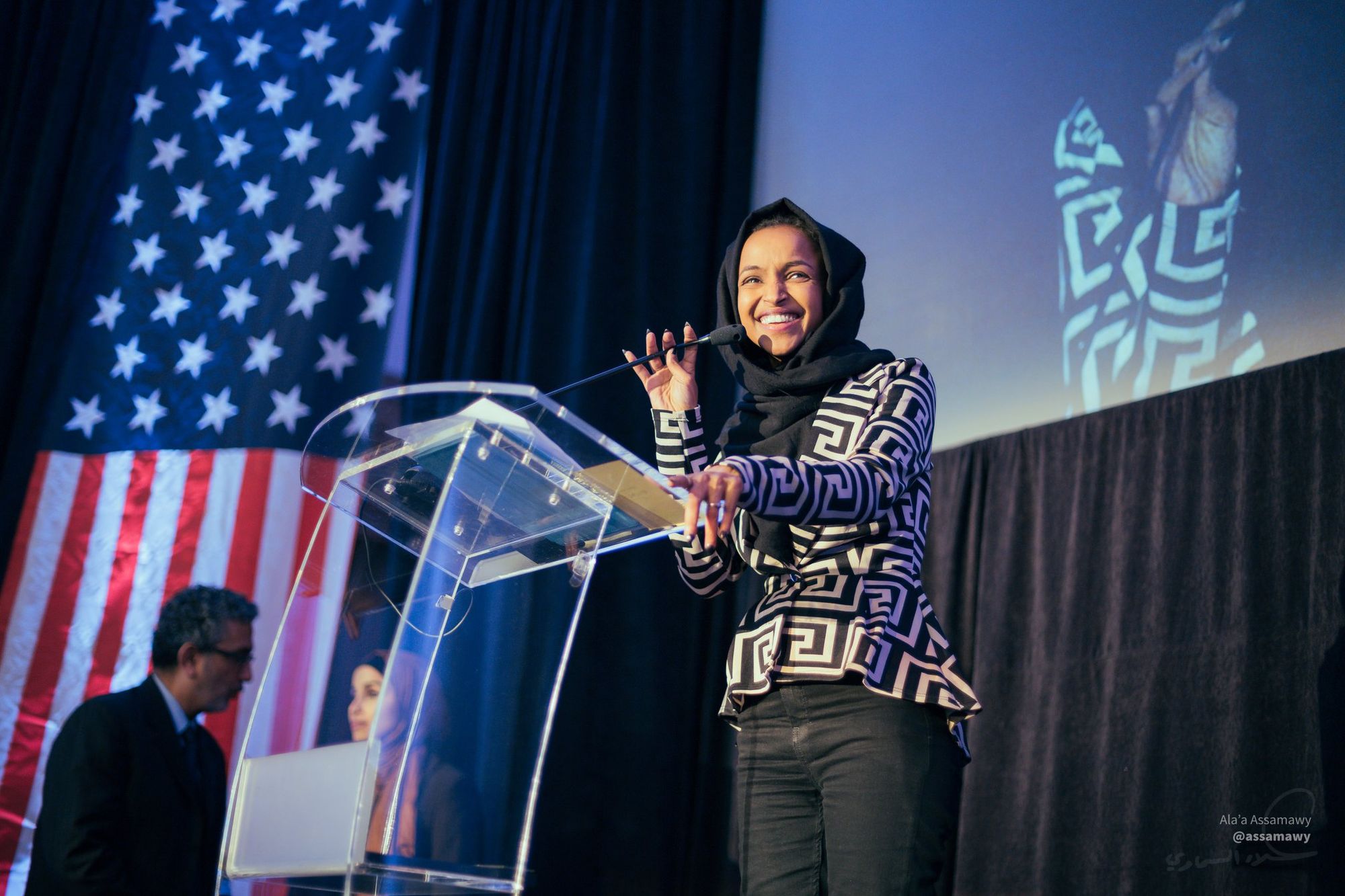
“We are excited to shape the narrative of what Palestinians, what Somalis, what Yemenis, what Syrians, what Muslims in this nation are like,” she said. “We are excited to talk about what the next generation can look like in the shaping of America that no longer sees us as second class citizens.”
“My sister Rashida and I will not rest a day until this ban is overturned and religious discrimination is no more in this country.”
She spoke about the importance of voting and of motivating Muslim candidates to run for office.
“If we decided that our aunties, our uncles, our children, our cousins are all going to show up and cast a ballot every single election, no one would dare to implement a Muslim ban,” she said boldly. “If we decided that we would donate $10, $20, $100, $1000 to candidates, no one would dare to question why a Muslim woman who is in Congress gets to be seated on a Foreign Affairs Committee.”
She urged everyone in the room to have “internal liberation,” because that is important in order to have Muslim voices heard.
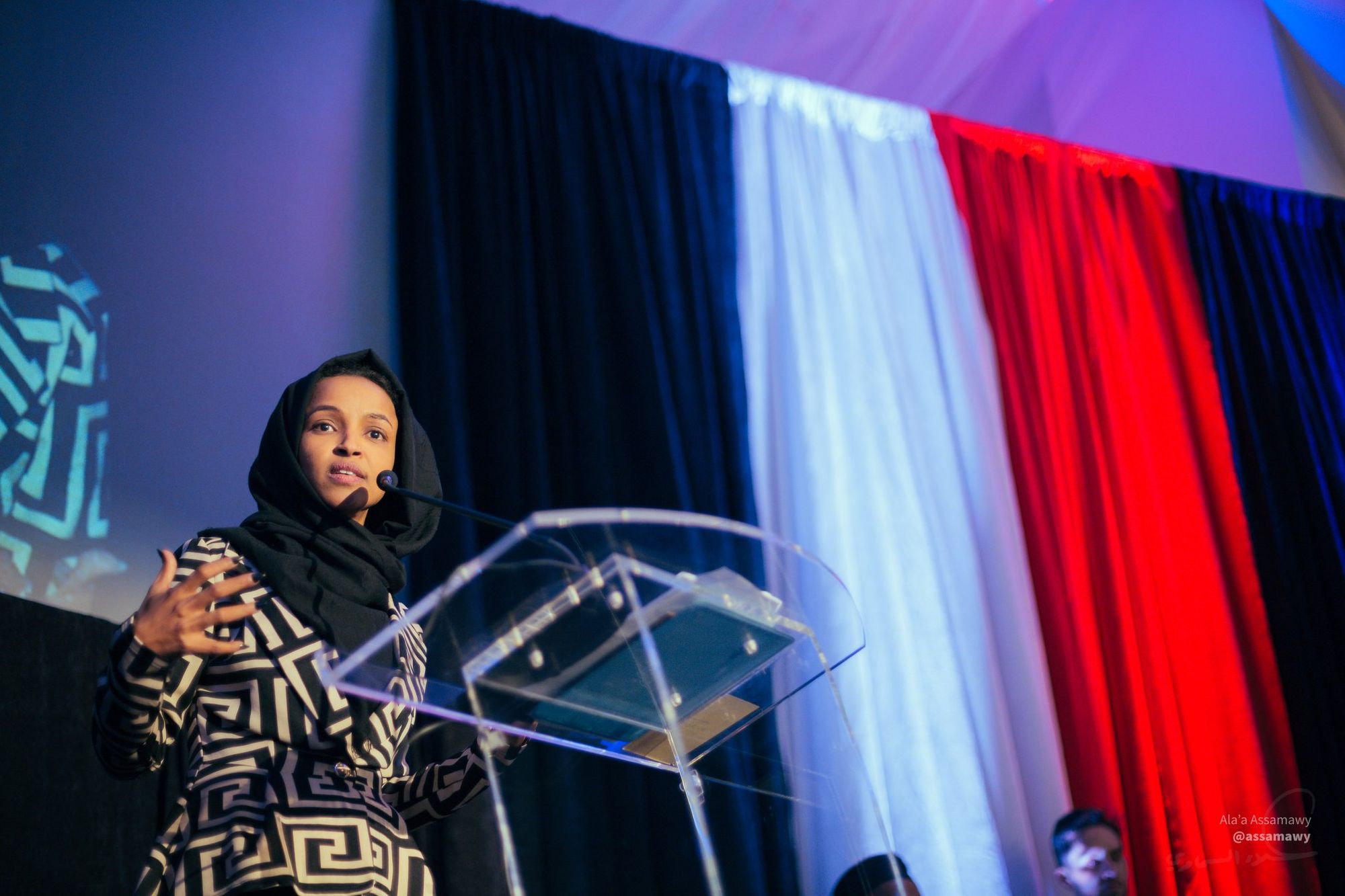
“People get to walk around us and talk about us as if we’re invisible,” she said. “We don’t have a reason to hide ourselves. We don’t have a reason to shy away from being a Muslim unapologetically.”
She noted that Islam has beautiful teachings that should be shared. Like charity, caring for neighbors, fighting for justice, and allowing “people to see each other’s humanity and respecting each other’s dignity,” she said, and that if Muslims hide, no one gets to see that. That allows people to “share an ugly narrative of what it means to be a Muslim.”
“So what I ask you to do is to help me, to help yourself, to help our children, and to help the generation not yet born to shape a beautiful narrative of what it means to be Muslim not only in this country but in this world. Are you in?”




